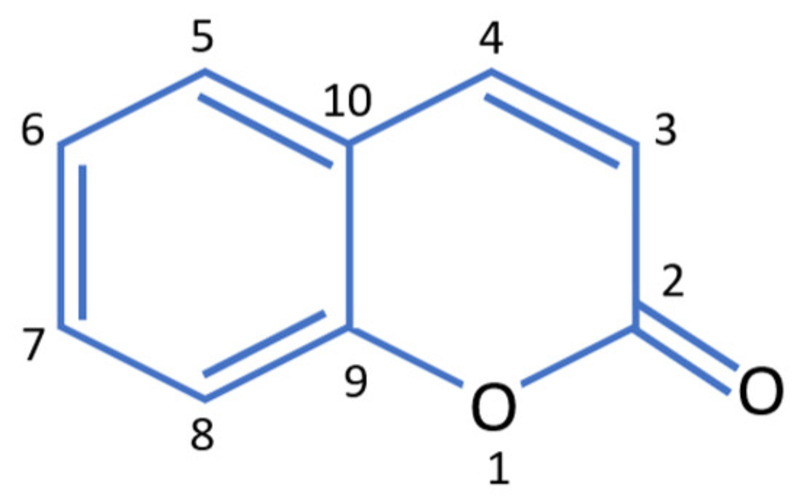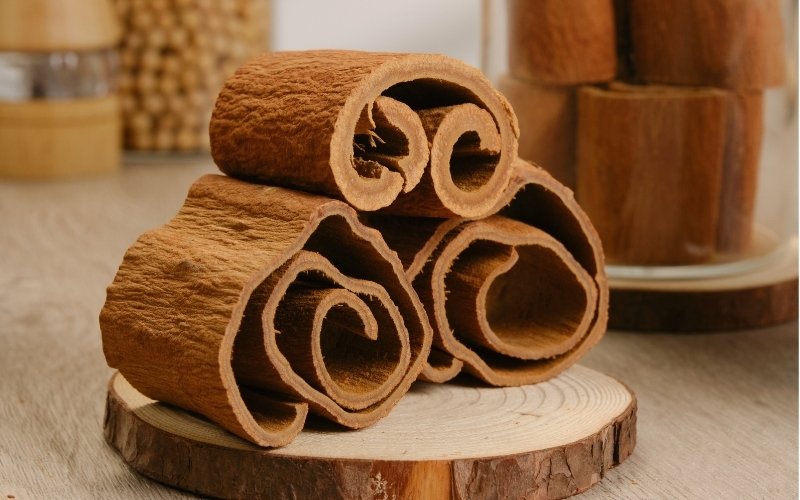The coumarin content in cinnamon: Differences between varieties
Cinnamon is a popular spice used in cooking, baking, and beverages worldwide. It’s known for its sweet, warm, and slightly spicy flavor. However, not all cinnamon is the same. There are different types of cinnamon, each with its unique flavor profile and chemical composition. One key factor that often gets overlooked is the coumarin content in cinnamon. Coumarin is a naturally occurring compound found in some types of cinnamon, but not all varieties contain the same amount. In this article, we’ll explore the differences in the coumarin content of cinnamon varieties and why it matters.
What is Coumarin?
Coumarin is a chemical compound that has a sweet scent and is found naturally in many plants, including cinnamon. While it is harmless in small amounts, excessive consumption of coumarin can be harmful to health. It has been linked to liver damage and has the potential to cause cancer if consumed in high amounts over long periods. For this reason, it is important to be aware of the coumarin content in the cinnamon you use, especially if you consume it regularly.
.jpg)
Different Types of Cinnamon
Levels of Coumarin in Cinnamon Types Table:
| Cinnamon Type | Botanical Name | Coumarin Level (Typical Range) | Source | Notes |
| Ceylon Cinnamon | Cinnamomum verum | Very Low (0.004% - 0.02%) | EFSA (2012) | Low risk, preferred for daily use. Often considered "true cinnamon". |
| Saigon Cinnamon | Cinnamomum loureiroi | High (4% - 8% or higher) | Blahová et al. (2012), Food and Chemical Toxicology | Intense flavor, highest coumarin |
| Chinese Cinnamon (Cassia) | Cinnamomum cassia | High (1% - 5%) | German Federal Institute for Risk Assessment (BfR) | Common in commercial products |
| Indonesian Cinnamon | Cinnamomum burmannii | Moderate (2% - 6%) | Health Canada (2023) | Also known as Korintje cinnamon |
>>> See more: Gusto organic cinnamon powder at a good price | genuine
Health Risks of High Coumarin Consumption
While the low levels of coumarin found in Ceylon cinnamon pose little to no health risk, the higher levels in Cassia cinnamon can be concerning if consumed in large amounts over time. High coumarin intake has been linked to several health issues:
Liver Damage: Excessive coumarin consumption can cause damage to the liver. Studies in animals have shown that high doses of coumarin can lead to liver toxicity, and there are concerns that long-term exposure could lead to liver damage in humans as well.
Cancer Risk: Some studies suggest that coumarin may be carcinogenic, meaning it could potentially contribute to the development of cancer. While the risk is minimal with low consumption, it becomes more significant with high, repeated intake.
Kidney Damage: In addition to liver damage, prolonged high coumarin consumption has been shown to have negative effects on kidney health.

>>> See more: Hagimex exports Vietnamese cinnamon sticks at competitive prices
How to Minimize Coumarin Intake
To reduce your risk of excessive coumarin consumption, it's important to be mindful of the type and amount of cinnamon you use. Here are a few tips to minimize your coumarin intake:
Choose Ceylon Cinnamon: If you use cinnamon regularly, consider switching to Ceylon cinnamon, as it contains much lower levels of coumarin. Ceylon cinnamon is widely available in health food stores and online.
Limit Cassia Cinnamon: While Cassia cinnamon is commonly used, try to limit its consumption, especially if you use it daily. Opt for Ceylon cinnamon in recipes where the flavor is important.
Use Cinnamon in Moderation: Even if you prefer Cassia cinnamon, it is important to use it in moderation. Most health experts recommend consuming no more than 1 teaspoon (2-4 grams) of cinnamon per day to avoid exceeding the safe levels of coumarin.
The coumarin content in cinnamon varies significantly between different types, with Ceylon cinnamon offering a much safer option for regular consumption due to its low coumarin levels. On the other hand, Cassia cinnamon, while widely available and commonly used, contains higher levels of coumarin, which can pose potential health risks when consumed in large amounts over time. Understanding these differences allows consumers to make informed choices about the cinnamon they use in their daily diet.

At Hagimex, we provide high-quality cinnamon products, including premium Ceylon cinnamon, ensuring you can enjoy the full benefits of this spice without the health concerns associated with higher coumarin content. Our products are sourced with care and meet international quality standards, so you can enjoy cinnamon in your cooking and baking while prioritizing your health. Visit us today to explore our range of cinnamon and other spices, and add a healthy touch of flavor to your meals.
 Hotline: +84-24-36649972
Hotline: +84-24-36649972 Email: info@hagimex.com
Email: info@hagimex.com